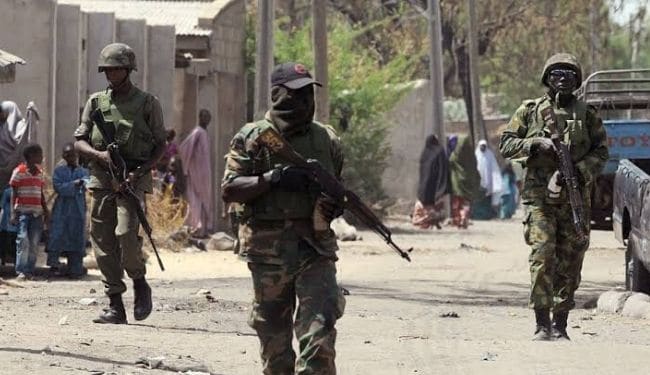Nigerian troops successfully thwarted a planned Boko Haram assault in the Gwoza area of Borno State on Wednesday, killing eight militants during a targeted operation. The military action, part of a broader counterinsurgency campaign in the country’s northeast, highlights ongoing efforts to suppress terrorist activities that have destabilized the region for over a decade.
The operation was carried out under the directive of Operation Hadin Kai, a joint military task force dedicated to combating insurgency in northeastern Nigeria. In a written statement, the operation’s commander, Major General Reuben Kovangiya, confirmed that troops responded swiftly after detecting an attempted infiltration by Boko Haram fighters in the early hours of the day.
Military units engaged the militants shortly after the attempted attack was foiled, initiating a clearance operation that resulted in the deaths of eight insurgents. According to Kovangiya, the preemptive response not only disrupted the group’s plans but also dealt a significant blow to its operational strength in the region.
Boko Haram, which emerged in the early 2000s, has grown into one of the most persistent security threats in Nigeria and the wider Lake Chad Basin. Its insurgency gained momentum in 2009, launching waves of bombings, abductions, and raids on civilians, security forces, and infrastructure. Over the years, the group has killed tens of thousands and contributed to widespread displacement and humanitarian crises.
Although primarily based in northeastern Nigeria, Boko Haram expanded its reach beyond the country’s borders starting in 2015. The group has carried out deadly attacks in neighboring Cameroon, Chad, and Niger, prompting regional security coalitions and multinational military cooperation aimed at curbing its influence.
Data from local and regional sources estimate that roughly 2,000 people have been killed in Boko Haram attacks specifically targeting areas around the Lake Chad Basin. The prolonged conflict has also forced hundreds of thousands of residents to flee their homes, seeking safety in internally displaced persons (IDP) camps or across borders.
The Nigerian military has continued to intensify its operations, combining aerial surveillance, ground offensives, and intelligence-driven missions to flush out insurgents hiding in remote and forested areas. While officials have reported several tactical victories in recent months, the conflict remains far from over, with sporadic attacks still occurring in vulnerable communities.
Authorities have urged residents in conflict-affected zones to remain alert and cooperate with security agencies. Major General Kovangiya reaffirmed the military’s dedication to restoring lasting peace and security, pledging that counterterrorism operations will persist until Boko Haram and other extremist threats are fully neutralized.
As the government and military maintain pressure on insurgent groups, the humanitarian situation in Borno and surrounding states remains dire. Displacement, food insecurity, and limited access to basic services continue to affect large segments of the population, underscoring the urgent need for both military and humanitarian responses to work hand in hand.



